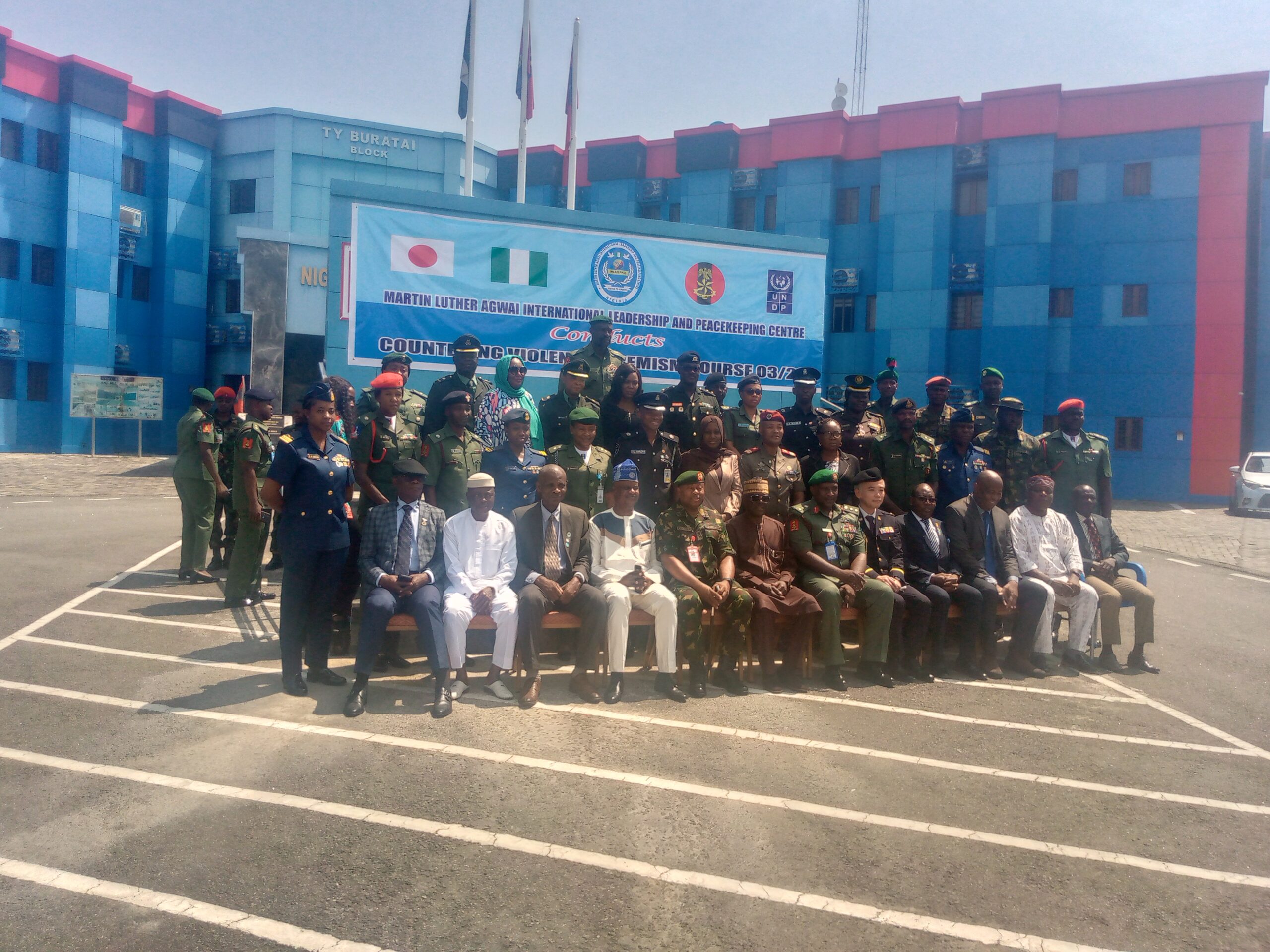The United Nations Development Programme (UNDP) says Nigeria has suffered 35,000 casualties from insurgency between 2009 and 2023.
Deputy Resident Representative (Programme) UNDP, Mr. Lealem B. Dinku, stated this Monday at the inauguration ceremony of the Countering Violent Extremism Course 3/2023 organized by the Martin Luther Agwai International Leadership and Peacekeeping Centre (MLAILPCK) at the Nigerian Army Resource Centre (NARC), Abuja
“It was estimated that between 2009 and 2023, Nigeria has suffered no less than 35,000 casualties while billions of dollars have been lost due to destruction of property, public infrastructures, disruption of socio-economic activities including livelihoods and displacement of mass population,” he said.
Represented by the Team Lead, Governance, Peace and Security UNDP, Mr. Matthew Alao, he said the prevalence and persistence violent extremism in West Africa has continued to create difficult environment for sustenance of human survival, good governance, and widespread impact of raving climate change.
“Violent extremism has resulted significant impacts, such as, mass casualties of inhabitants, displacement of the populations, socio-economic disruptions, and destruction of infrastructures in the region.
You will agree with me that violent extremism has continued to be ingrained in scope and impact since creeping into Nigeria geographical space in 2009 but has been more pronounced since 2013,” he said.
He however, commended the governments of Nigeria and governments of the West Africa sub-region for its determination in confronting terrorism.
“The governments of Nigeria in collaboration with the governments of the West Africa sub-region and technical and financial assistance from the development partners have determinedly been taking steps to confront violent extremism and address the underlying factors that are propitiating the spread of violent extremism in the region,” he said.
He said the countering violent extremism capacity building course is one of the numerous interventions being deployed by the government of Nigeria and its partners – UNDP and the government of Japan to curtail the menace and escalation of violent extremism in Nigeria and in the West Africa region.
“This course is, therefore, targeted to build and strengthen the capacities of relevant stakeholders drawn from the ECOWAS region,” he said.
In his remarks, the representative of the Japanese Embassy in Nigeria, Lt Col. Morita Tatsuya, said Japan is committed to improving the world’s ability to fight against violent extremism.
He said it is also important to implement measures to counter violent extremism, which is at the root of terrorism.
According to him, in order to prevent and eradicate terrorism, the international community must unite in its efforts to combat terrorism.
He lamented that violent extremism has resulted to loss of many lives and properties, the displacement of millions of residents in Nigeria and the west Africa sub region
“Unfortunately, Nigeria has been subjected to the adverse effects and attacks of Boko Haram and ISWAP in the North-East for quite long time. The activities of terrorists have resulted in the loss of many lives and properties, the displacement of millions of residents, and enormous economic losses. More recently, terrorists have expanded their sphere of influence to the North-West and other parts of the country.
“Therefore, there still is an urgent need to sharpen the capacity of security authorities regarding counterterrorism and the protection of civilians, and the Government of Japan believes that it is quite timely and beneficial to have this capacity building course to counter violent extremism.”
Also speaking, a former Chief of Defence Staff, Gen. Martin Luther Agwai, said no single security agency can handle violent extremism due to its complex nature, hence the decision of the centre to expand its scope and involve other security agencies.
“Peace and security have become complex and multi dimensional, and require multidimensional approaches to address,” he said.
He charged the participants strive to become experts so they can be able to impart knowledge gained to others.
” You can’t call yourself an expert in any field until you are able to transmit knowledge to others,” he said.




